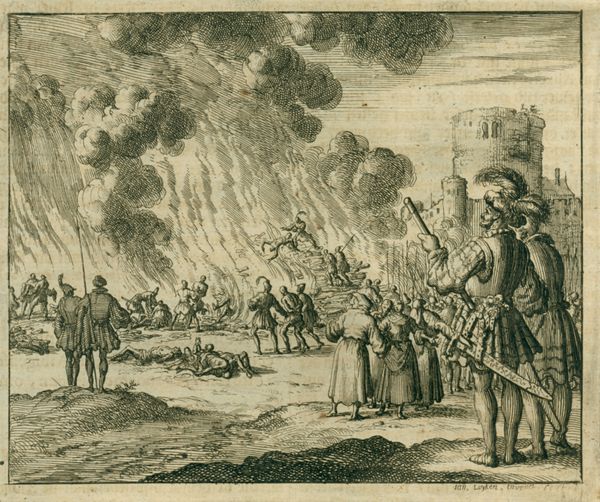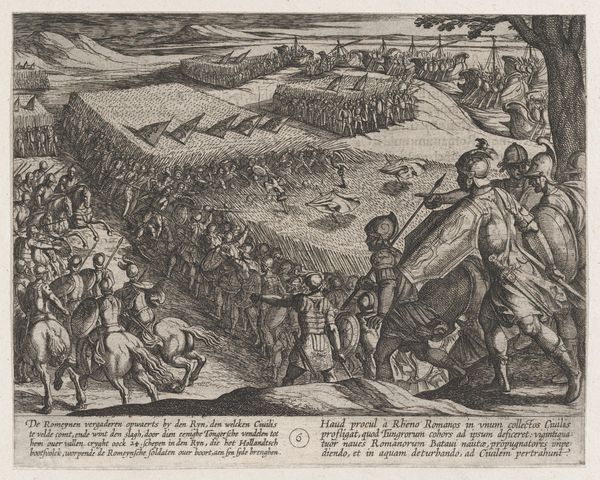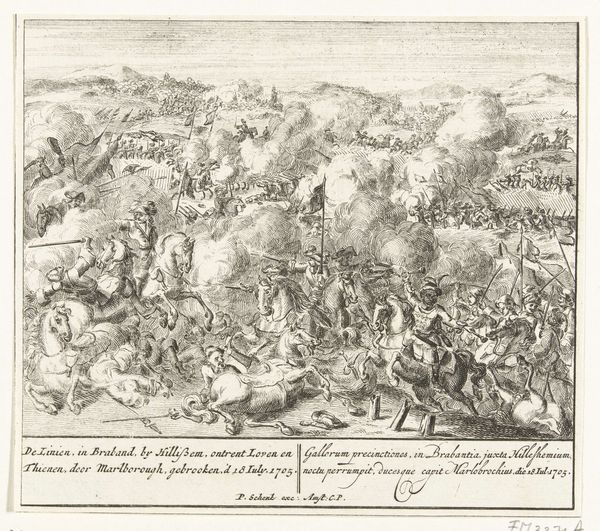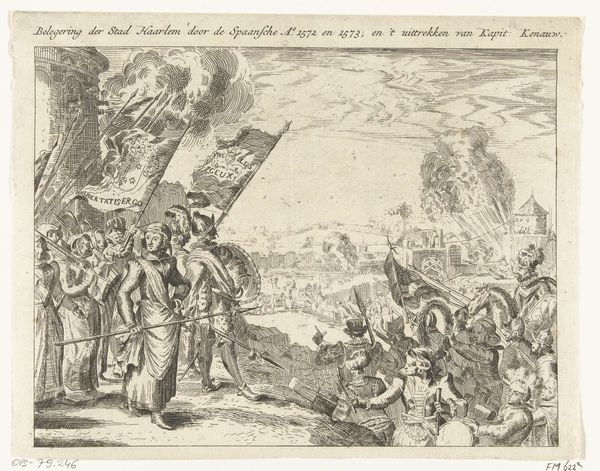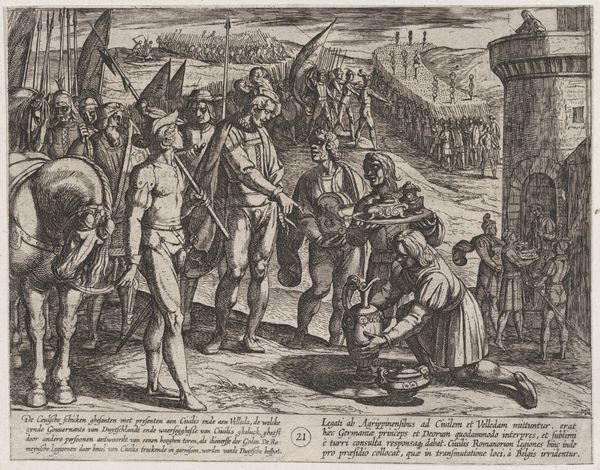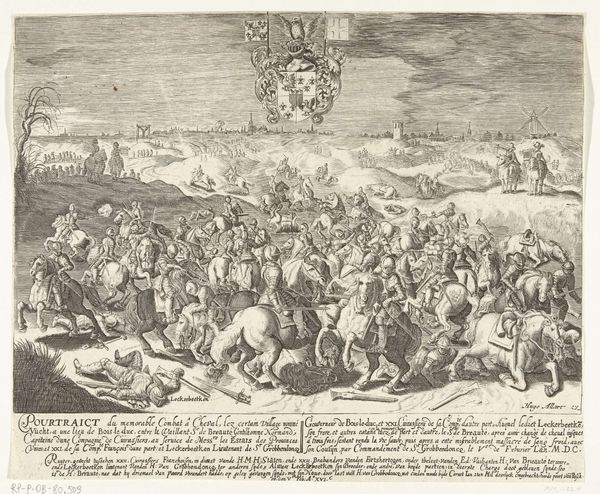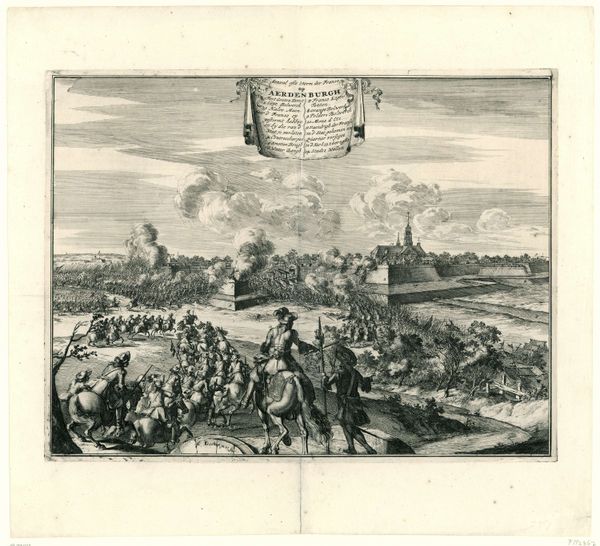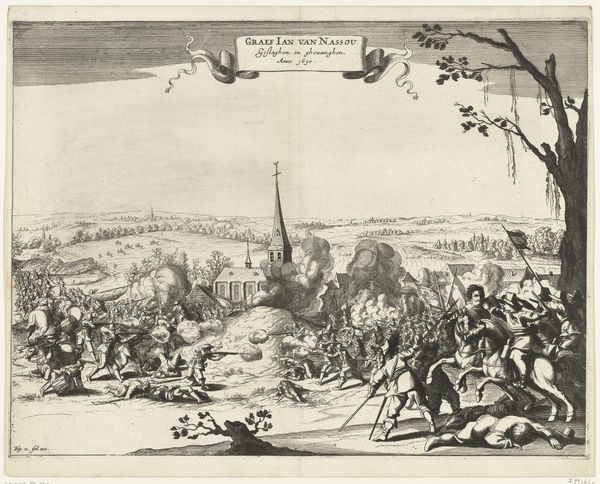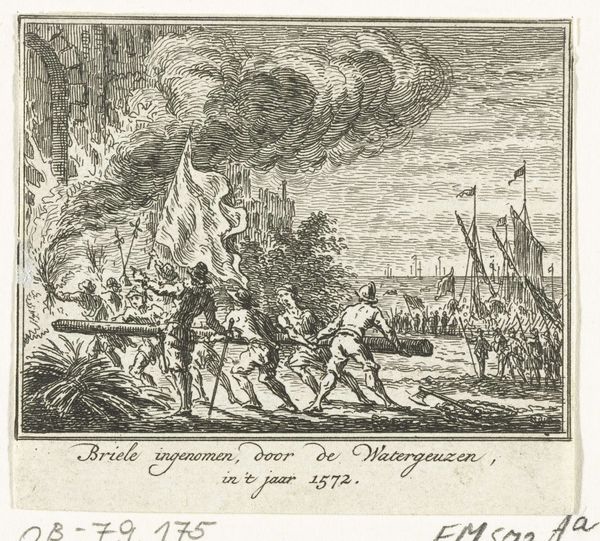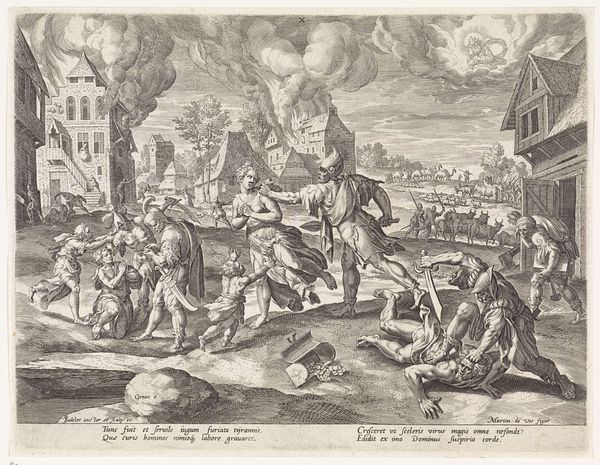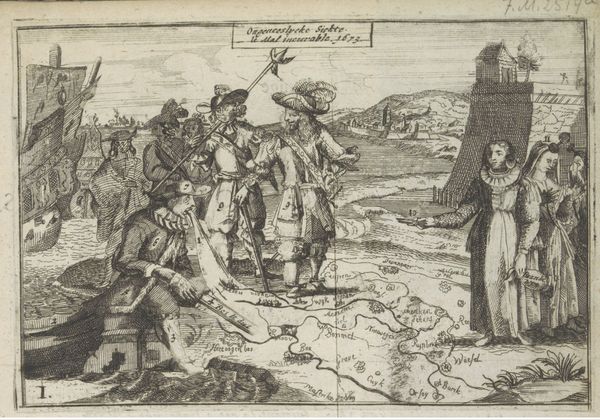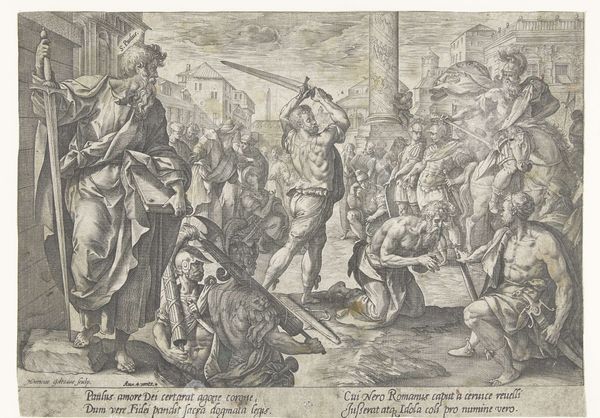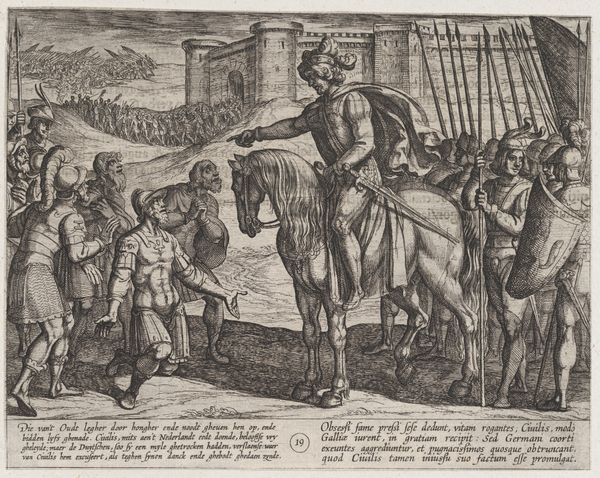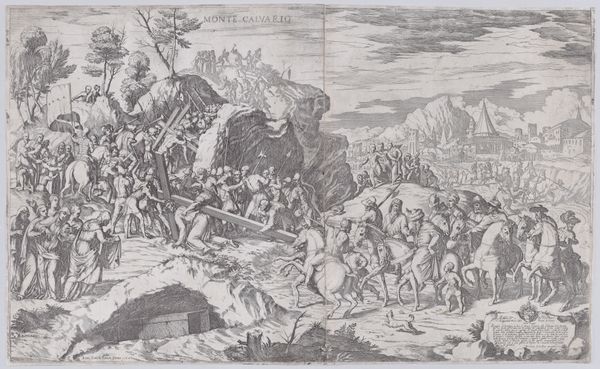
print, metal, engraving
#
narrative-art
#
baroque
#
pen drawing
#
dutch-golden-age
# print
#
metal
#
figuration
#
line
#
history-painting
#
engraving
Dimensions: height 188 mm, width 234 mm
Copyright: Rijks Museum: Open Domain
Romeyn de Hooghe created this print, "Kenau Hasselaer on the Walls of Haarlem, 1573," using engraving, a process that demands meticulous labor. Engraving involves using a tool called a burin to carve lines directly into a metal plate, which is then inked and printed. The sharp, precise lines we see here are a testament to de Hooghe's skill and the physical effort required. The image depicts Kenau Hasselaer, a woman who became a folk hero for her defense of Haarlem against the Spanish. Through the medium of printmaking, de Hooghe makes her story accessible, turning it into a symbol of Dutch resistance. This wasn't just art for art's sake, but a form of political communication. Prints like these were relatively affordable and could be distributed widely, shaping public opinion. The very act of creating and disseminating this image was a form of resistance, a way of asserting Dutch identity in a time of conflict. This print blurs the lines between art, craft, and propaganda, reminding us of the power of images to shape history.
Comments
No comments
Be the first to comment and join the conversation on the ultimate creative platform.
